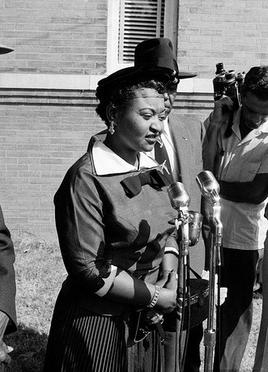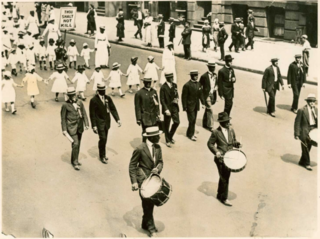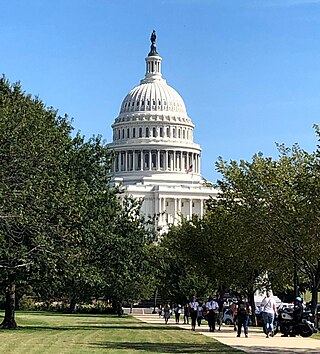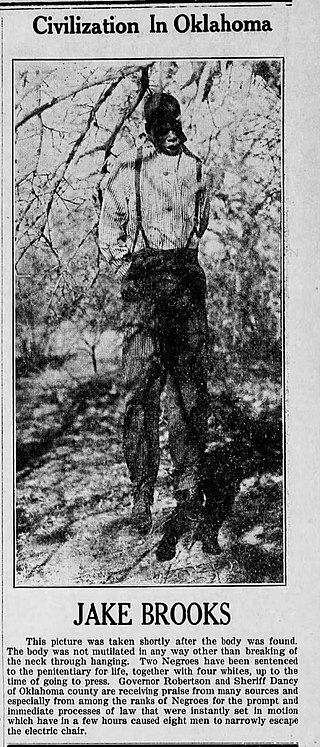
Bobby Lee Rush is an American politician, activist and pastor who served as the U.S. representative for Illinois's 1st congressional district for three decades, ending in 2023. A civil rights activist during the 1960s, Rush co-founded the Illinois chapter of the Black Panther Party.

The Dyer Anti-Lynching Bill (1918) was first introduced in the 65th United States Congress by Representative Leonidas C. Dyer, a Republican from St. Louis, Missouri, in the United States House of Representatives as H.R. 11279 in order "to protect citizens of the United States against lynching in default of protection by the States." It was intended to establish lynching as a federal crime. The Dyer Anti-Lynching Bill was re-introduced in subsequent sessions of United States Congress and passed, 230 to 119, by the House of Representatives on January 26, 1922, but its passage was halted in the United States Senate by a filibuster by Southern Democrats, who formed a powerful block. Southern Democrats justified their opposition to the bill by arguing that lynchings were a response to rapes and proclaiming that lynchings were an issue that should be left for states to deal with.

Lynching was the widespread occurrence of extrajudicial killings which began in the United States' pre–Civil War South in the 1830s, slowed during the civil rights movement in the 1950s and 1960s, and continued until 1981. Although the victims of lynchings were members of various ethnicities, after roughly 4 million enslaved African Americans were emancipated, they became the primary targets of white Southerners. Lynchings in the U.S. reached their height from the 1890s to the 1920s, and they primarily victimized ethnic minorities. Most of the lynchings occurred in the American South, as the majority of African Americans lived there, but racially motivated lynchings also occurred in the Midwest and border states. In 1891, the largest single mass lynching (11) in American history was perpetrated in New Orleans against Italian immigrants.

Leonidas Carstarphen Dyer was an American politician, reformer, civil rights activist, and military officer. A Republican, he served eleven terms in the U.S. Congress as a U.S. Representative from Missouri from 1911 to 1933. In 1898, enrolling in the U.S. Army as a private, Dyer served notably in the Spanish–American War; and was promoted to colonel at the war's end.

Mamie Elizabeth Till-Mobley was an American educator and activist. She was the mother of Emmett Till, the 14-year-old youth murdered in Mississippi on August 28, 1955, after accusations that he had whistled at a white grocery store cashier named Carolyn Bryant. For Emmett's funeral in Chicago, Mamie Till insisted that the coffin containing his body be left open, because, in her words, "I wanted the world to see what they did to my baby."

The Matthew Shepard and James Byrd Jr. Hate Crimes Prevention Act is a landmark United States federal law, passed on October 22, 2009, and signed into law by President Barack Obama on October 28, 2009, as a rider to the National Defense Authorization Act for 2010. Conceived as a response to the murders of Matthew Shepard and James Byrd Jr., both in 1998, the measure expands the 1969 United States federal hate-crime law to include crimes motivated by a victim's actual or perceived gender, sexual orientation, gender identity, or disability.

Randal Howard Paul is an American politician serving as the junior United States senator from Kentucky since 2011. A member of the Republican Party, he has described himself as a constitutional conservative and a supporter of the Tea Party movement. His libertarian views have been compared to those of his father, three-time presidential candidate and 12-term U.S. representative from Texas, Ron Paul.

Thomas Harold Massie is an American politician and former engineer. A member of the Republican Party, Massie has been the United States representative for Kentucky's 4th congressional district since 2012. The district covers much of northeastern Kentucky, but is dominated by the Kentucky side of the Cincinnati area and Louisville's eastern suburbs.

The anti-lynching movement was an organized political movement in the United States that aimed to eradicate the practice of lynching. Lynching was used as a tool to repress African Americans. The anti-lynching movement reached its height between the 1890s and 1930s. The first recorded lynching in the United States was in 1835 in St. Louis, when an accused killer of a deputy sheriff was captured while being taken to jail. The black man named Macintosh was chained to a tree and burned to death. The movement was composed mainly of African Americans who tried to persuade politicians to put an end to the practice, but after the failure of this strategy, they pushed for anti-lynching legislation. African-American women helped in the formation of the movement, and a large part of the movement was composed of women's organizations.

The 117th United States Congress was a meeting of the legislative branch of the United States federal government, composed of the United States Senate and the United States House of Representatives. It convened in Washington, D.C., on January 3, 2021, during the final weeks of Donald Trump's first presidency and the first two years of Joe Biden's presidency and ended on January 3, 2023.

Donald John Bacon is an American politician and retired military officer serving as the U.S. representative for Nebraska's 2nd congressional district since 2017. Before holding public office, he was a United States Air Force officer, retiring as brigadier general with time as wing commander at Ramstein Air Base, Germany and Offutt Air Force Base south of Omaha, Nebraska, prior to his retirement from the military in 2014. His district includes all of Omaha and the areas surrounding the Offutt base.
The Emmett Till Unsolved Civil Rights Crime Act is an Act of the United States Congress introduced by John Lewis (GA-5) that allows the reopening of cold cases of suspected violent crimes committed against African Americans before 1970. The U.S. House of Representatives passed the legislation on June 20, 2007, by a vote of 422 to 2. The U.S. Senate passed the legislation on September 24, 2008, by unanimous consent, and President George W. Bush signed the bill into law on October 7.

The Freedom to Vote Act, introduced as H.R. 1, is a bill in the United States Congress intended to expand voting rights, change campaign finance laws to reduce the influence of money in politics, ban partisan gerrymandering, and create new ethics rules for federal officeholders.
On February 1st, 2019, U.S. Senator Cory Booker announced his 2020 presidential campaign. Booker went on to in five Democratic presidential debates, but failed to qualify for the sixth debate. He suspended his campaign on January 13, 2020, later endorsing former Vice President Joe Biden, who went on to win the Democratic nomination and the general election.

The Marijuana Opportunity Reinvestment and Expungement Act, also known as the MORE Act, is a proposed piece of U.S. federal legislation that would deschedule cannabis from the Controlled Substances Act and enact various criminal and social justice reforms related to cannabis, including the expungement of prior convictions.

The Emmett Till Antilynching Act is a United States federal law which defines lynching as a federal hate crime, increasing the maximum penalty to 30 years imprisonment for several hate crime offences.

The George Floyd Justice in Policing Act of 2021 was a policing reform bill drafted by Democrats in the United States Congress. The legislation was introduced in the United States House of Representatives on February 24, 2021. The legislation aims to combat police misconduct, excessive force, and racial bias in policing.

The lynching of Jake Brooks occurred in Oklahoma City, Oklahoma on January 14, 1922.

The Creating a Respectful and Open World for Natural Hair Act of 2022 was a bill in the United States Congress intended to prohibit discrimination based on an individual's hair texture or hairstyle by classifying such discrimination illegal under federal law. It applied to federally assisted programs, housing programs, public accommodations, and employment. The act was introduced in the House of Representatives by Congresswoman Bonnie Watson Coleman (D-NJ) on March 19, 2021. Senator Cory Booker (D-NJ) introduced a companion bill in the Senate on March 22, 2021. The CROWN Act of 2022 marked the second time the legislation was introduced in Congress.












